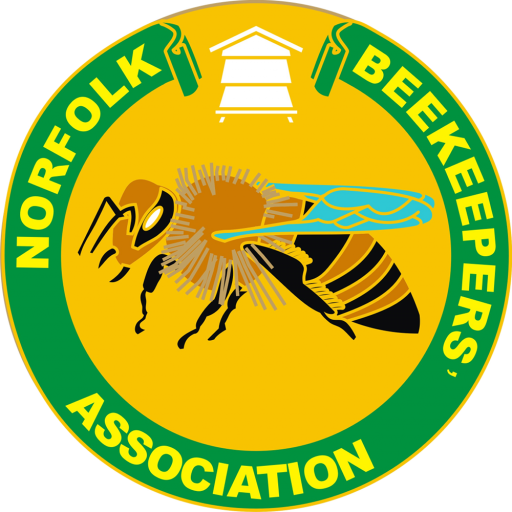NBKA is also on Facebook.
The National Bee Unit delivers the Bee Health Programmes on behalf of Department for Environment Food and Rural Affairs (DEFRA) and Welsh Assembly Government (WAG) in England & Wales. Its function is to protect the honeybee, an essential pollinator of crops and wild plants, from threats such as serious disease and environmental damage. This is done using an integrated programme of apiary inspections, diagnosis, research and development, training and extension provided by a team of bee scientists and experienced practical beekeepers. Specialist advice and technical consultancy services on bee health are provided to government departments, beekeepers and industry. Nationally important news about beekeeping is published on the website, and beekeepers are advised to subscribe to BeeBase to receive alerts by email, and to monitor the RSS feed for general news.
The British Beekeepers Association (BBKA) exists to promote beekeeping in England and Northern Ireland. Full NBKA members are automatically BBKA members.
West Norfolk and King’s Lynn Beekeepers’ Association
thorne.co.uk Beekeeping equipment and supplies
honeyshow.co.uk National Honey Show
Beekeeping courses at Easton College
Dave Cushman now maintained by Roger Patterson, a comprehensive resource for beekeepers
beekeepingforum.co.uk, a forum where beekeepers can discuss and debate their approaches
BIBBA, the Bee Improvement and Bee Breeders Association, encouraging conservation and improvement of the native and near-native strain of honey bee
hivessavelives.com Hives Save Lives – Africa is the brainchild of Richard Unwin, an international businessman who became absorbed in discovering ways and means of combating rural poverty in Africa. He was disillusioned by the apparent lack of impact that aid is having on the lives of the most disadvantaged communities in Africa, and sceptical about how much benefit reaches those who needed it most. He was searching for a means of combating poverty that would be delivered directly to those most in need without engendering further aid dependency.
Apiculture was the solution. Beekeeping has a long tradition in Africa, but is not commonly practiced as a commercial activity because of lack of resources and training. In many countries, ‘honey hunting’ rather than bee farming is the norm, whereby natural colonies or traditional log hives are often destroyed to collect the honey, with little consideration given to sustainable management or the potential for income generation.
By introducing better equipment and training, beekeeping can provide a viable income for people who, in many areas, are living on less than 60p a day.
We are currently working in Uganda, where we manufacture the hives that have been specifically designed for local conditions. Protective clothing and equipment, such as smokers, are also made in Uganda, providing more employment. We provide a package of hives, training and equipment to our beneficiary projects, and provide ongoing support, from colonising the hives to assisting with the marketing of the honey and other hive products.
